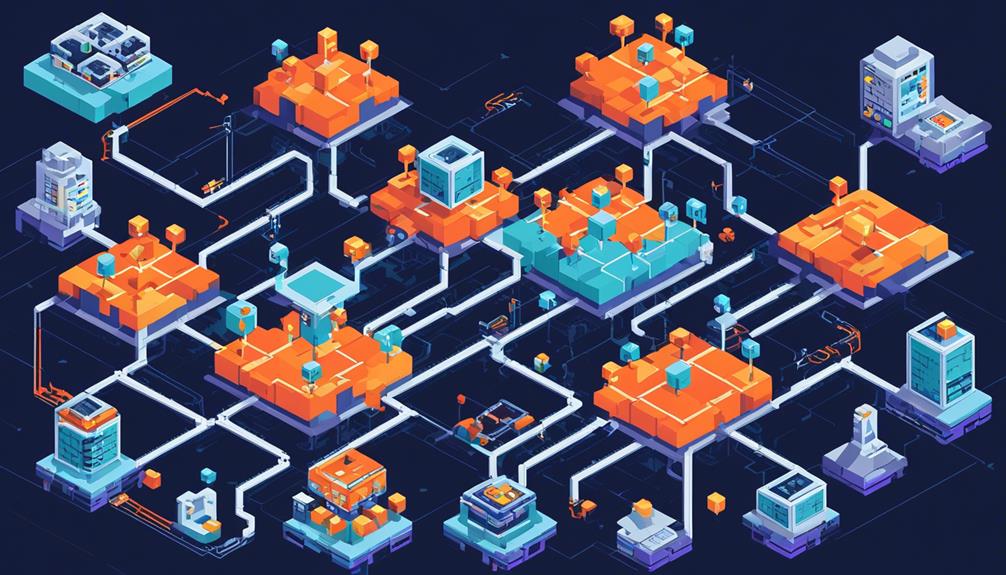In today's interconnected world, network security is of paramount importance for organizations and individuals alike. Among the various tools and strategies employed to safeguard networks, firewalls stand as a critical line of defense.
Firewalls play a pivotal role in protecting computers and networks from cyber threats by acting as a barrier between trusted internal networks and potentially malicious external networks. They serve as gatekeepers, controlling incoming and outgoing network traffic based on predetermined rules, such as source/destination IP address, port number, or protocol.
However, firewalls are not infallible, and their effectiveness greatly depends on regular updates and correct configuration. In this discussion, we will explore the multifaceted role of firewalls in network security, their various models and functionalities, as well as best practices for their configuration and management.
This discussion will leave you with a deeper understanding of the vital role firewalls play in safeguarding our networks.
Key Takeaways
- Firewalls play a crucial role in network security by safeguarding computers and networks from cyber attackers and malicious network traffic.
- They act as security systems that monitor and control incoming and outgoing network traffic, blocking unauthorized access attempts and preventing the spread of malicious software.
- Firewall configurations determine access levels and filtering rules to prevent unauthorized access, and they filter network traffic, allowing authorized traffic while blocking malicious or unauthorized connections.
- Firewalls provide an additional layer of defense for network security, creating a secure perimeter between internal and external networks, and they can be implemented as hardware or software firewalls, offering different levels of protection.
Importance of Firewalls in Network Security

The importance of firewalls in network security cannot be overstated as they are essential for safeguarding computers and networks from cyber attackers and malicious network traffic. Firewalls act as security systems that monitor and control incoming and outgoing network traffic, filtering data based on predetermined rules. By doing so, firewalls block unauthorized access attempts and prevent the spread of malicious software, protecting sensitive data and ensuring the integrity of network systems.
Firewalls play a crucial role in network security by examining data packets and determining whether they should be allowed or blocked. They analyze the traffic based on various factors, such as the source and destination IP addresses, port numbers, and application protocols. This granular inspection allows firewalls to effectively identify and block potentially harmful traffic.
Furthermore, firewalls provide an additional layer of defense for network security. They serve as a barrier between internal networks and external networks, such as the internet. In this way, firewalls create a secure perimeter that helps prevent unauthorized access and potential attacks.
There are two main types of firewalls: hardware firewalls and software firewalls. Hardware firewalls are physical devices that are positioned between computers and the internet. They offer an extra line of defense for multiple computers within a network. On the other hand, software firewalls are either built-in or available as separate applications. They control the network behavior of individual applications, enhancing security at the application level.
Role of Firewalls in Protecting Data
The role of firewalls in protecting data encompasses several key points.
First, data protection methods are implemented through firewall configurations, which determine the level of access and filtering rules. These configurations help in preventing unauthorized access and protecting sensitive data from potential threats.
Additionally, firewalls play a crucial role in network traffic filtering, allowing authorized traffic while blocking malicious or unauthorized connections, further enhancing data protection measures.
Data Protection Methods
Firewalls play a crucial role in safeguarding data by inspecting network traffic and controlling access to sensitive resources. They employ various data protection methods to ensure the security of the network.
One commonly used method is packet filtering, where the firewall examines each packet of data passing through it and allows or blocks them based on predetermined rules.
Another method is deep packet inspection, which involves analyzing the content of the packets to detect any potential threats or malicious activity.
Firewalls, whether hardware-based or software-based, provide an additional layer of defense for the network. However, it is important to note that software firewalls may hinder the detection and prevention of malicious activity.
Proper firewall management, including regular updates and monitoring, is essential for effective data protection.
Firewall Configurations
Firewall configurations play a vital role in protecting data by implementing rules to allow or block specific network traffic based on various criteria. These configurations are essential components of network security, as they help prevent unauthorized access and protect against malicious activities.
When it comes to firewall configurations, there are several important factors to consider:
- Network Address Translation (NAT): Firewalls can be configured to translate internal IP addresses to external ones, providing an additional layer of security by hiding the actual network structure from potential attackers.
- Intrusion Prevention System (IPS): By configuring firewalls with IPS, network traffic can be monitored and analyzed to detect and prevent potential intrusions or attacks in real-time.
Network Traffic Filtering
Network traffic filtering is a critical function of firewalls in safeguarding data and ensuring network security. Firewalls serve as a key network security device that can detect and filter incoming and outgoing network traffic based on predefined rules.
They use various techniques, such as stateful inspection firewall and intrusion prevention system (IPS), to analyze network packets and determine whether to allow or block them. By examining factors such as source/destination IP address, port number, and protocol, firewalls can prevent unauthorized access and protect against malicious software.
This traffic filtering capability is a fundamental aspect of firewall technology that helps maintain network security, ensuring the integrity and confidentiality of data.
Different Models of Firewalls
Packet Filtering firewalls, Stateful Inspection firewalls, Proxy firewalls, Next-generation firewalls, and Hardware firewalls are different models of firewalls used in network security.
- Packet Filtering firewalls examine individual packets of data and filter them based on predetermined rules. They are efficient at blocking known malicious traffic and can be configured to allow or deny specific types of packets based on their source or destination addresses, ports, or protocols.
- Stateful Inspection firewalls track the state of network connections and make decisions based on the context. They not only inspect individual packets but also analyze the entire conversation between two hosts. This allows them to detect and prevent certain types of attacks, such as unauthorized access attempts or data exfiltration.
- Proxy firewalls act as intermediaries between clients and servers, filtering and forwarding network traffic. They provide an additional layer of security by hiding the internal network's IP addresses and making it harder for attackers to directly target specific hosts. Proxy firewalls can also perform content filtering, preventing users from accessing certain websites or downloading malicious files.
- Next-generation firewalls combine traditional firewall functionalities with advanced features like intrusion prevention and application awareness. They can identify and block sophisticated attacks that traditional firewalls might miss. Next-generation firewalls also provide enhanced visibility into network traffic, allowing administrators to monitor and control application usage.
- Hardware firewalls are dedicated devices that provide firewall protection for an entire network. They are designed to handle high volumes of traffic and offer robust security features. Hardware firewalls are typically placed at the network perimeter, acting as the first line of defense against external threats.
Understanding Packet Filtering Firewalls

Packet filtering firewalls play a crucial role in network security by filtering network traffic based on predetermined rules. They operate at the network layer and make decisions based on source/destination IP addresses, port numbers, and protocols.
Filtering Network Traffic
Examining individual packets of data and filtering them based on predetermined rules, packet filtering firewalls play a crucial role in securing network traffic and preventing unauthorized access. These firewalls analyze the source/destination IP address, port number, and protocol of network traffic to determine whether to allow or block it. By distinguishing between benign and malicious traffic, packet filtering firewalls act as an integrated intrusion prevention system.
The ability to react quickly and seamlessly to potential threats makes them an essential component of network security. Firewall software implements packet filtering through different types of firewalls, such as stateless or stateful firewalls. Implementing packet filtering technology allows organizations to have granular control over their network traffic, ensuring only authorized communication is allowed while blocking any potential threats.
Enhancing Network Security
To enhance network security, understanding packet filtering firewalls is crucial in effectively controlling network traffic and preventing unauthorized access.
Packet filtering firewalls are a type of firewall that operate at the network layer and make decisions based on specific criteria such as packet headers, source/destination IP addresses, and ports. These firewalls examine individual packets of data and filter them based on predetermined rules.
By blocking or allowing traffic based on these criteria, packet filtering firewalls enhance network security by preventing unauthorized access and protecting against certain types of cyber threats. They serve as a first line of defense in a security policy and are effective in controlling network traffic.
However, it is important to note that packet filtering firewalls do not offer the same level of protection as software firewalls operating at the application layer or virtual private networks (VPNs).
Proxy Service Firewalls and Their Functionality
Proxy service firewalls play a crucial role in network security by acting as intermediaries, filtering and forwarding network traffic between clients and servers. These firewalls provide an additional layer of security by inspecting and controlling traffic at the application layer, where many cyber threats originate. By examining and filtering messages at this layer, proxy service firewalls can prevent certain types of application-layer attacks from reaching the internal network.
Here are some key functionalities of proxy service firewalls:
- Traffic Inspection: Proxy service firewalls inspect and analyze network traffic at the application layer. This allows them to identify and block malicious content or requests, preventing potential security breaches.
- Granular Control: These firewalls can block or allow specific applications or content, providing granular control over network traffic. This level of control ensures that only authorized and safe traffic is allowed into the network.
Proxy service firewalls also offer additional benefits:
- Enhanced Privacy and Security: By acting as intermediaries, these firewalls can mask the internal network from external users. This enhances privacy and security by hiding sensitive information and making it more difficult for potential attackers to gain unauthorized access.
- Preventing Application-Layer Attacks: Application-layer attacks, such as SQL injection or cross-site scripting, can have devastating consequences for organizations. Proxy service firewalls can detect and block these types of attacks, protecting the network and its resources.
Stateful Inspection Firewalls and Their Advantages

Stateful inspection firewalls offer key features that enhance network security and efficient traffic management.
By monitoring the state of active network connections, these firewalls can make decisions based on the context of packet flows, distinguishing legitimate requests from potentially harmful traffic.
This advanced functionality provides improved protection against sophisticated attacks and allows for better understanding and management of the state of network communications.
Key Features
Stateful inspection firewalls offer enhanced network security by tracking the state of network connections and making decisions based on the overall context, resulting in a higher level of protection against unauthorized access and secure data transmission.
Here are the key features of stateful inspection firewalls:
- Comprehensive packet analysis: Stateful inspection firewalls analyze the entire packet flow, allowing them to distinguish legitimate traffic from potentially harmful data. This enables more accurate and efficient filtering, ensuring that only authorized packets are allowed through.
- Deeper scrutiny: By maintaining a comprehensive view of the network connections, stateful inspection firewalls provide a higher level of security. They inspect packets not only based on individual characteristics but also in the context of the entire connection. This allows them to identify and block suspicious activities, making them a robust first line of defense.
Enhanced Security
Enhanced network security can be achieved through the implementation of stateful inspection firewalls, which provide advanced protection and control over network traffic. These firewalls track the state of network connections, allowing them to make decisions based on context and providing more granular control over traffic. By analyzing the context of traffic, stateful inspection firewalls offer enhanced security compared to traditional packet-filtering firewalls, making more informed decisions and preventing certain types of attacks that might bypass other types of firewalls. This higher level of security and control over network traffic reduces the risk of unauthorized access and potential threats. The advantages of stateful inspection firewalls include improved security, better protection against sophisticated attacks, and more efficient management of network traffic.
| Advantages of Stateful Inspection Firewalls |
|---|
| Improved security |
| Better protection against sophisticated attacks |
| More efficient management of network traffic |
Efficient Traffic Management
Efficient traffic management can be achieved through the implementation of stateful inspection firewalls, which provide advanced protection and control over network traffic by tracking the state of network connections and making context-based decisions.
These firewalls offer several advantages for network security and traffic management:
- Improved Performance:
- Stateful inspection firewalls analyze the context of network traffic, allowing for more accurate traffic filtering and reducing false positives.
- By maintaining connection state information, these firewalls can make more informed decisions about network packets, resulting in improved performance.
- Enhanced Security:
- Stateful inspection firewalls monitor the state of active connections, allowing only legitimate traffic to pass through and filtering out malicious traffic.
- With their ability to track the state of network connections, these firewalls provide enhanced security for efficient traffic management.
Exploring Next-Generation Firewalls (NGFW)

What are the key features and benefits of Next-Generation Firewalls (NGFW) in network security? Next-Generation Firewalls (NGFWs) are an essential component of network security, offering advanced protection against cybersecurity threats such as malware and intrusions. They integrate traditional firewall functionalities with additional features like intrusion prevention and application awareness, providing a comprehensive approach to network security. The key features and benefits of NGFWs can be summarized in the following table:
| Key Features | Benefits |
|---|---|
| Deep Packet Inspection | – Identifies and blocks sophisticated threats |
| – Enables granular control over network traffic | |
| Advanced Risk Detection | – Enhances security posture |
| – Protects against emerging threats | |
| Content and User Identification | – Provides visibility into network activities |
| – Enables targeted security policies | |
| Real-time Scanning | – Detects and mitigates threats in real-time |
| – Prevents the spread of malware |
NGFWs go beyond the capabilities of traditional firewalls by performing deep packet inspection at the application layer. This allows them to identify and block sophisticated threats that may bypass traditional security measures. Additionally, NGFWs offer advanced risk detection, content, and user identification, enabling organizations to enhance their security posture and protect against emerging threats.
Another key feature of NGFWs is real-time scanning. By continuously monitoring network traffic, they can detect and mitigate threats in real-time, preventing the spread of malware and other malicious activities.
Benefits of Deploying Firewalls in Network Infrastructure
Deploying firewalls in network infrastructure provides essential protection against unauthorized access and cyber attacks, ensuring the integrity and security of the network. The benefits of implementing firewalls in network infrastructure are significant and play a crucial role in enhancing network security.
Here are some key benefits:
- Regulating and controlling network traffic: Firewalls help in filtering and monitoring incoming and outgoing network traffic. By examining packets and enforcing access control policies, firewalls ensure that only legitimate and safe data passes through. This capability prevents unauthorized users and malicious software from gaining access to the network and helps in maintaining network integrity.
- Safeguarding sensitive data: Firewalls are an integral part of a comprehensive cybersecurity strategy. By deploying firewalls, organizations can protect their sensitive data from being compromised. Firewalls act as a barrier between the internal network and external threats, preventing potential security breaches and ensuring data privacy.
In addition to these benefits, firewalls also offer other advantages, such as:
- Enhanced network visibility: Firewalls provide organizations with insights into network traffic patterns, enabling them to identify potential threats or suspicious activities. This visibility helps in proactive threat detection and response.
- Compliance with regulations: Many industries have specific regulations and guidelines regarding network security. Deploying firewalls helps organizations meet these compliance requirements and avoid penalties or legal consequences.
Enhancing Network Security With Firewalls

Firewalls play a pivotal role in fortifying network security by providing essential protection against unauthorized access and cyber threats. They enhance network security by controlling and monitoring the flow of traffic between a trusted internal network and untrusted external networks, such as the Internet. Firewalls accomplish this by examining the source and destination IP addresses, port numbers, and other characteristics of network packets to determine whether to allow or block data.
One way firewalls enhance network security is by blocking data from specific IP addresses or ranges of IP addresses. This capability allows organizations to restrict access to their network from known malicious sources or countries where they do not conduct business. By effectively filtering out unwanted network traffic, firewalls reduce the attack surface and minimize the risk of unauthorized access.
Firewalls also enhance network security by preventing unauthorized access to specific applications or ports. They can be configured to allow or deny traffic based on the specific needs of the organization. For example, a firewall can be configured to only allow inbound traffic on specific ports required for essential services, while blocking traffic on all other ports. This approach helps to protect against potential vulnerabilities and exploitation of unused or unnecessary services.
In addition to their traffic filtering capabilities, firewalls provide an important layer of defense by inspecting network packets for signs of malicious activity. They can detect and block various types of cyber threats, including malware, viruses, and intrusion attempts. By actively monitoring network traffic and analyzing packet contents, firewalls can identify and mitigate potential security risks.
Implementing Firewalls for Secure Network Communication
As organizations aim to fortify their network security, the implementation of firewalls becomes crucial for ensuring secure network communication and safeguarding against unauthorized access and cyber threats. Firewalls play a vital role in controlling the flow of network traffic, allowing only authorized and safe data packets to pass through while blocking potentially harmful or unnecessary traffic. Implementing firewalls involves deploying both hardware and software solutions to create a robust defense system.
Here are two key considerations when implementing firewalls for secure network communication:
- Hardware Firewalls: Hardware firewalls provide a first line of defense by positioning physical devices between computers and the internet or network connection. These devices analyze incoming and outgoing traffic, filtering and blocking any unauthorized or malicious data packets. Hardware firewalls are particularly effective for protecting multiple computers within an organization, as they can handle a large volume of traffic and provide centralized management.
- Software Firewalls: Software firewalls, whether built-in features or downloaded separately, focus on controlling the network behavior of individual applications. They examine the network traffic generated by specific software and enforce predefined rules to allow or block communication. Software firewalls are typically implemented on individual devices and offer granular control over network access.
Implementing firewalls for secure network communication is an ongoing process as the nature of cyber threats and network vulnerabilities continue to evolve. Regularly reviewing and updating firewall configurations, understanding their default settings, and aligning them with other security measures are essential to maintain the effectiveness of firewalls in network security.
Best Practices for Configuring and Managing Firewalls

To ensure optimal network security, it is imperative to adhere to best practices when configuring and managing firewalls. As the network landscape continues to evolve, firewalls play a crucial role in protecting the network from unauthorized access and malicious threats. Implementing these best practices helps maximize the effectiveness of firewalls in securing network traffic.
One of the key best practices is regularly updating the firewall firmware and software. This ensures that any security vulnerabilities are patched, reducing the risk of exploitation. Additionally, following the principle of least privilege is essential. Granting only necessary access permissions minimizes the potential for unauthorized access and limits the impact of any potential breaches.
Strong password policies for firewall administration are also necessary for maintaining security. Complex passwords and regular password changes enhance the firewall's resilience against unauthorized access attempts. Furthermore, regular review and update of firewall rules are crucial to align them with the organization's security policies. This ensures that the firewall is effectively filtering and controlling network traffic.
To enhance network security, it is important to monitor firewall logs and alerts for any suspicious activity. By actively monitoring and analyzing firewall logs, organizations can identify potential threats and take appropriate action promptly. This proactive approach helps maintain the integrity and security of the network.
In summary, configuring and managing firewalls according to best practices is vital for network security. Regular updates, least privilege access, strong password policies, rule reviews, and proactive monitoring all contribute to a robust firewall infrastructure that can seamlessly detect and mitigate security risks. By implementing these best practices, organizations can fortify their network defenses and protect against emerging threats.
| Best Practices for Configuring and Managing Firewalls |
|---|
| Regularly update firewall firmware and software |
| Follow the principle of least privilege |
| Implement strong password policies |
| Regularly review and update firewall rules |
Frequently Asked Questions
What Are the 3 Main Advantages of Using Firewalls?
Firewalls offer several key advantages in network security.
Firstly, they protect networks by blocking unauthorized access and potentially harmful network traffic.
Secondly, they prevent the spread of malicious software by monitoring and filtering incoming and outgoing data.
Lastly, firewalls enhance overall security by enforcing firewall rules, which determine what types of network traffic are allowed or denied.
What Is the Role of Firewall in Managing Data?
Firewalls play a crucial role in managing data by ensuring data protection, access control, network traffic filtering, intrusion prevention, application level security, and network segmentation. They safeguard sensitive data by inspecting incoming and outgoing network traffic, blocking malicious or unnecessary data.
Firewalls use rules to determine whether to allow or block specific types of data traffic, enhancing the overall security of the network. Their role is vital in maintaining the confidentiality, integrity, and availability of data.
What Is Firewall and Its Types in Network Security?
Firewalls are an essential component of network security, serving as a protective barrier against cyber threats. They come in various types, including hardware and software firewalls, each with its own advantages and considerations.
Hardware firewalls offer the ability to protect multiple computers and control network traffic, while software firewalls provide granular control over individual applications. Both types require careful configuration, maintenance, and integration with other security tools for optimal performance and protection of the network.
Why Are Firewall Rules Important?
Firewall rules play a crucial role in network security by determining what traffic is allowed or blocked. Proper firewall configuration is of utmost importance as it helps organizations control and monitor network activity, enhancing overall security.
Common mistakes in firewall rules can lead to vulnerabilities and potential security breaches. Adhering to firewall rule best practices, such as regularly auditing and monitoring rules, can help optimize network performance and ensure the confidentiality, integrity, and availability of data.
Implementing firewall rule optimization techniques is key to maintaining robust network security.
